
Ray Bradbury (1920-2012)
On June 6, 2012, I lost a hero. At the age of 91, Ray Bradbury passed away, leaving this world for the next. Bradbury was one of the most significant writers of our time and his influence helped to reshape the science fiction genre as well as other forms of literature.
It is a hard thing to lose a hero, especially when true heroes are difficult to find. I am grateful to have discovered Ray Bradbury and his books. In many ways his work made me want to write and inspired me to discover new science fiction stories, stories that I had once thought were just for boys…not geeky girls like me.
Ray Bradbury was a true inspiration. I can’t think of any better way to say “thank you” than to honor the man, the writer, and his work by bringing together writers who have been, in some way, touched by his influence and to give their words a place in this memorial. If you have a thought, memory, or favorite book, you’re welcome to add your voice to this tribute in the comments below.
Thank you, Mr. Bradbury. You have been and always will be one of my heroes in this life and the next. Rest in peace.
~ Erin Underwood, Underwords
~
DAVID BRIN — author
[Excerpted with permission of the author. Read the full post here.]
Good literature has that power. Indeed, science fiction offers writers a chance to create that most potent work, of which “Fahrenheit 451″ is a prime example. The self-preventing prophecy that so shakes up readers that millions of them gird themselves to prevent the nightmare from ever coming true. That’s power….
Ray was grateful, always, for what life had allowed a geeky youngster to do. I am thankful that he was my friend. And we who love both words and freedom of the mind should all feel gratitude today. For all those wonderful words.
BRUCE COVILLE — author
The great thing I learned from reading Ray Bradbury when I was young was that fantasy and science fiction could be not only thrilling, but beautifully written, even poetic. I loved the pulse-pounding pace of good pulp fiction, but in Bradbury I discovered something richer and deeper. It was a great gift to provide to an aspiring young writer.
JANE YOLEN — author
I never actually met Ray Bradbury, except in the pages of the book. But in many ways he had more to do with my being the writer I am today than most of my closest friends. His books showed me how to write a novel, his stories taught me how beauty and plot could be combined. So I guess I really did meet him. Only he didn’t know it.
JACK MCDEVITT — author
Back in the sixties and seventies, during my days as a high school English teacher, I was never a fan of the notion that my job was to teach the classics. To introduce my kids to Chaucer and Dostoevsky. Rather, it seemed as if the critical thing was to induce a passion for reading. Get students excited about books, I thought, and they’ll find these guys on their own. So I never stopped looking for books that would turn kids on. Nothing ever worked as well, or even came as close, as Ray Bradbury’s Martian Chronicles.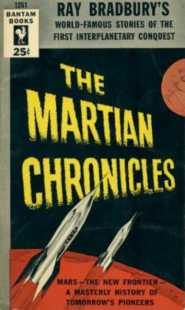
I routinely staged the first part of “Mars Is Heaven” as an introduction. My students were surprised when they landed on Mars and looked out on that alien town with its picket fences and neatly-cut hedges and its houses and church. And I’m pretty sure I heard gasps when we opened the hatch and my special effects guy started a recording of “Beautiful Dreamer.”
Teaching English with Bradbury in the classroom was not only easy, it was delirious.
I should add, probably, that I did not learn about the power of poetry from my schools. It came when I was about fifteen, reading stories with titles like “There Will Come Soft Rains.”
GREGORY FROST — author
I never met Ray Bradbury, though his fiction had far more influence on the teenage me than any of the other fantasy/sf authors who were his contemporaries. His prose was smooth and crystal-clear, his stories often quietly stunning. I’ve reread The Martian Chronicles half a dozen times over the years, and am always pleased to discover how well it holds up, how lovely it remains. Of course, it’s the Mars of Bradbury’s imaginings, his childhood–far closer to Barsoom than to the arid planet we scrutinize nowadays.
When I first started writing short stories, his works exercised an enormous influence upon me. I’m part of a generation who in the midst of conversation could casually toss out “Boys, Raise Giant Mushrooms…” and everybody knew the reference, got the joke.
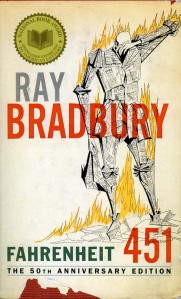 Two years back I participated in live readings for Banned Books Week at the Free Library of Philadelphia. We had a list of the most-banned from which to select a work. And there, in the very first column, was Fahrenheit 451. I hadn’t read that book since I was maybe 16. But I flipped through it and quickly found a great dramatic speech by Beatty, Montag’s boss, about the dangers that books present and need for firemen such as himself to eradicate them. That’s what I read that night.
Two years back I participated in live readings for Banned Books Week at the Free Library of Philadelphia. We had a list of the most-banned from which to select a work. And there, in the very first column, was Fahrenheit 451. I hadn’t read that book since I was maybe 16. But I flipped through it and quickly found a great dramatic speech by Beatty, Montag’s boss, about the dangers that books present and need for firemen such as himself to eradicate them. That’s what I read that night.
But as I sat there waiting my turn, I wondered what in this brilliant book could possibly have scared somebody so much that they’d ordered it banned. It couldn’t be the language. It definitely wasn’t depictions of sex. What was left? Ideas? Are ideas in fiction that scary? Apparently…in which case Ray Bradbury must have scared those people shitless–because he recognized that such as they existed and wrote a novel reflecting their odious little minds. And then in an act of supreme irony, those same people banned the book about banning books. Bradbury had the last laugh and they didn’t even notice.
Bradbury was one of the best–maybe the best–fantasists of the 20th century. His works enthralled, entertained, and burrowed so deeply under my skin that I can remember whole stories that I read nearly half a century ago. But more than anything else, Ray Bradbury was a prose poet who could summon the numinous. We will be reading him as long books exist.
TOBIAS BUCKELL — author
[Excerpted with permission of the author. Read the full post here.]
I owe a great deal of my own dogged persistence to Bradbury’s being willing to talk about those 500 early rejections. Too often literary giants are presented in their current position as if they became what they were via fait accompli. Without this crucial understanding as to how freaking hard Bradbury worked, I would never have had the courage to keep pushing on despite early rejections.
And that piece of advice, that realization about how hard he worked, led me to fall even further in love with his writing as time passed.
Thank you, Mr. Bradbury. I am disappointed I never got to meet you. You and Arthur C. Clarke are the two writers that had a tremendous impact on me that I will never have gotten a chance to meet.
F. BRETT COX — author
Bradbury’s books were among the building blocks of my youth, and Fahrenheit 451 is probably second only to 1984 in terms of an sf novel’s broad cultural influence.
ELLEN DATLOW — editor
I’ve been reading Ray Bradbury’s short stories throughout my life. I’ve loved The Martian Chronicles, The Illustrated Man, heartbreaking stories such as “There Will Come Soft Rains” and chilling stories such as “Heavy Set.”
I only met him once or twice and was way too shy to tell him how much his stories meant to me, even though I published four new ones in OMNI Magazine between 1981 and 1995.
One other connection: Back in 1993 I posed for a textbook illustration artist Nicholas Jainschigg created for Bradbury’s story “The Rocket,” about a family man who dreams of going into space but realizes that he can’t afford to take his whole family. I am the wife in two illustrations. I received a copy of the book –Dream a World as payment—I’ve just found the book. (I never met my fictional “family”—Nick inserted the picture of me into the scenes).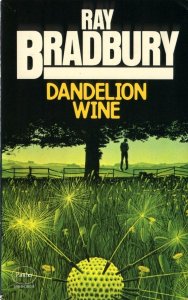
MYKE COLE — author
For me, it was always the Hound. Reading is banned, books are being burned. Dark, ominous. I got it. But I first read Fahrenheit 451 as a kid. The idea of government, let alone oppressive government, was a distant, abstract thing. I wouldn’t want anyone to tell me I couldn’t read, and I certainly wouldn’t want black-suited fireman to cart me off, but . . . whatever. The firemen were always cops in my mind’s eye. Cops I knew, cops I was used too. Cops didn’t scare me.
But the hound was an eight-legged, silent, metal monstrosity. Its LED eyes glowed red. The database in its nose stored and tracked 10,000 scents, 10,000 identities it could locate, track and . . . bring to heel. Its darting tongue was a razor sharp needle, backed by a rotating battery crammed with liquid filled cylinders. Those cylinders were in turn filled with poisons to paralyze, sedate, stun, wound or even kill, depending on the egregiousness of your crime.
The firemen were people, humans. The hound was a demon from hell. It couldn’t be reasoned with. It didn’t have children of its own. It wouldn’t care if you cried. It wasn’t impressed by your tender years. You couldn’t lose it. You couldn’t outrun it.
The hound would find you. The hound would make you pay.
Reading the hound was one of my earliest experiences with how great writing could evoke emotion. I knew it wasn’t real, but I still couldn’t escape the chill horror that imagining it evoked. When I read those pages, when I imagined it, it was real. It was as real as anything in the sunlit world that had ever frightened me.
That was the power of science fiction. Ray Bradbury showed it to me, and it became a lifelong passion. It’s odd to mourn a man for frightening me, but life’s surprising sometimes. Bradbury showed me that imaginary stories can thrill in a bone deep way that real life is hard pressed to match. That singular lesson had the rearing of me, and is just one of the reasons why I join the rest of world in missing him so terribly.

NANCY HOLDER — author
I think it was a LOSCON (Los Angeles SF convention usually held over Thanksgiving weekend) and the late, lamented SF bookstore Dangerous Visions had a booth. I was friends of owners Art Cover and Lydia Marano, so I was hanging out. Over walked Ray Bradbury, who chatted a bit and proceeded to buy every roll, every pack, every scrap of Disney wrapping paper they had. I felt the same way a little kid feels when they see their teacher at the grocery store, and I was tongue-tied and thrilled. I’m a huge Disney freak, so the fact that he bought DV’s entire wrapping paper inventory made the moment even more magical. He wrapped up my reading life and my imagination in magical paper–with his words on it. That is even more precious to me than Bambi.
KEN SCHOLES — author
I was deeply saddened this week by the passing of the man who showed me what I wanted to be when I grew up.
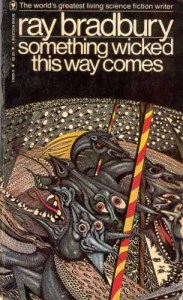 I fell into Bradbury through the Martian Chronicles as a boy and he haunted my childhood with his stories. They took me on a Roadtrip to Wonderment that changed my life and later, when I was fourteen, I read his essay “How to Keep and Feed a Muse” and suddenly knew a kindred spirit — someone else who loved Story so much that it had to explode out of him, someone else who understood that kind of deep, abiding love for wonder. I started writing stories. At sixteen, I wrote him and told him what I was doing, typing up stories and submitting them to magazines, following in his footsteps. He wrote back. He recommended some books and urged me to write a thousand words a day until I had a million words. And he encouraged me to write to him each October. The next year, I wrote again and he wrote back…this time with a silver pen on a Something Wicked This Way Comes poster. I don’t know what I wrote to him but I remember asking him questions about my favorite book and this was his reply:
I fell into Bradbury through the Martian Chronicles as a boy and he haunted my childhood with his stories. They took me on a Roadtrip to Wonderment that changed my life and later, when I was fourteen, I read his essay “How to Keep and Feed a Muse” and suddenly knew a kindred spirit — someone else who loved Story so much that it had to explode out of him, someone else who understood that kind of deep, abiding love for wonder. I started writing stories. At sixteen, I wrote him and told him what I was doing, typing up stories and submitting them to magazines, following in his footsteps. He wrote back. He recommended some books and urged me to write a thousand words a day until I had a million words. And he encouraged me to write to him each October. The next year, I wrote again and he wrote back…this time with a silver pen on a Something Wicked This Way Comes poster. I don’t know what I wrote to him but I remember asking him questions about my favorite book and this was his reply:
“Dear Ken: Yes, Will Halloway lives in California! Jim Nightshade lives in Rome with six girlfriends — and Mr. Dark?? Mr. Dark says hello to Ken! As do I with thanks!”
It lives in my treasure box. Grace dropped like a stone into the murky pond of my childhood.
I grew up poor in a trailer in rural Washington state with a mentally ill mother and an alcoholic stepfather. It was an unfortunate childhood, riddled with darkness, but Bradbury was light in that place. A compass that pointed me toward what was good and beautiful. And ultimately, a compass that brought me to a new kind of home, at rest and play in Story, with a new kind of family that has made my life richer…and full of love.
More than the words he wrote, more than the stories he told, Bradbury was an amazing lover. He loved Story. He loved life. He loved his tribe of wonder-children and gave himself to them. When Antiphon came out, I dedicated it to him for showing me what I wanted to be when I grew up. When I wrote that dedication, it wasn’t just that I wanted to be a writer, but that like him, I wanted to bring more grace into the world than I had found in it upon my arrival.
Live forever, Ray Bradbury.
KEVIN J. ANDERSON — author
[Excerpted with permission of the author. Read full post here.]
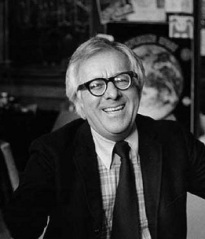 I read all those stories—every one, book after book—in high school, and they inspired me so much. I wrote my own stories, dozens of them, submitted them to magazines, got rejected, wrote more, submitted more, eventually got a few published. And then I found in my public library’s new books-on-tape section, a collection of Ray Bradbury short stories read by the author himself. I checked it out immediately and played them in my car cassette deck for weeks, listening to Ray Bradbury read his stories to me. It was amazing, and even after many years I realized how much those stories had made an impact, and that many of my own stories were taken from those great works.
I read all those stories—every one, book after book—in high school, and they inspired me so much. I wrote my own stories, dozens of them, submitted them to magazines, got rejected, wrote more, submitted more, eventually got a few published. And then I found in my public library’s new books-on-tape section, a collection of Ray Bradbury short stories read by the author himself. I checked it out immediately and played them in my car cassette deck for weeks, listening to Ray Bradbury read his stories to me. It was amazing, and even after many years I realized how much those stories had made an impact, and that many of my own stories were taken from those great works.
GORDON VAN GELDER — editor, publisher
[Reprinted with permission of the author. Read the full post on Underwire, including additional tributes from other authors.]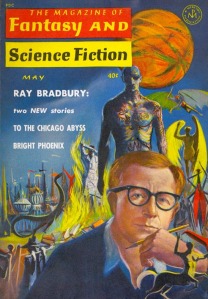
Ray Bradbury had some of the world’s best nightmares and I’m eternally grateful to him for sharing them with us.
He did a lot of other things, too — showed us that dreams of the future are compatible with nostalgia for youth, taught us the poetry of rocketry, and gave us many smiles — but it’s the nightmares I value most. Some of them came with the carnival, some lurked in the sea. One of them was just about being locked in a closet.
“I don’t try to describe the future,” said Ray Bradbury. “I try to prevent it.” For me, that one comment defined an entire style of science fiction, an approach that will always be valid as long as we have a future. I’m glad to live in a world where people learned from Bradbury’s nightmares.
KAT HOWARD — author
I might have been a writer without reading Ray Bradbury, but there is no question that, had I not read him, I wouldn’t be the kind of writer I am now. It’s no secret to anyone who knows me that I love Shakespeare, but it was Bradbury’s work that sent me in the direction of Shakespeare’s plays.
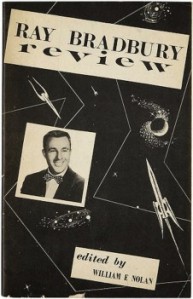
I was very young, about nine I think, when I checked Something Wicked This Way Comes out of the library. I remember telling my Mom I picked it because I loved the title, and she quoted the lines from Macbeth: “By the pricking of my thumbs/ something wicked this way comes.” And I was hooked – not just on Shakespeare, but on the idea that writers could do that, could borrow bits and pieces of cool stuff from other writers and other stories and use them to make something new.
That experience reshaped the way I thought about stories, and so I am forever grateful to Ray Bradbury, not only for the wonderful gift of his work, but for the way he taught me to think.
BETH REVIS — author
[Excerpted with permission of the author. Read the full post here.]
“All Summer in a Day” and Fahrenheit 451 are very dark. They are sad. They do not end happily ever after. In particular, “All Summer in a Day” speaks of cruelty–even at the hands of our peers–and the ceaseless darkness in any person’s heart, even the heart of a child.
And yet despite all this–Ray Bradbury’s works give me hope.
I’ve said before how to me, dystopians are not depressing books. They’re books of hope. They’re books that say even when things are at their darkest, there is still a glimmer of light.
Ray Bradbury was the first person to teach me that.
BETH BERNOBICH — author
Dear Mr. Bradbury, a Timeline
1950: The Martian Chronicles, by Ray Bradbury, is published.
1972: It’s summer. I’m twelve years old, the youngest of four kids. My older brother brings home a used copy of The Martian Chronicles. This was a tradition with my siblings–they would venture forth from our staid household, where salt and pepper were the only spices imaginable, and bring back news from the outside world.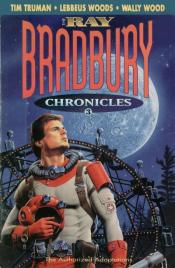
I devour the book in one sitting, then sit back, amazed.
Mind you, this isn’t my first encounter with speculative fiction–I’ve read The Hobbit and The Lord of the Rings–but it is my first encounter with science fiction. With stories about humans from our world, meeting with inhabitants from a planet in our own solar system.
And it’s just three years after I saw Neil Armstrong take that first step on the moon.
But what I really care about are the people in those stories–the people from Earth meeting the people from Mars. Those meetings weren’t always friendly, or safe, but in the end, I came away with a sense of hope and wonder.
It wasn’t until many years later that I started to write science fiction and fantasy myself, and more years until I sold those stories. Always, though, in the back of my mind, was the impression that stories should be about wonder.
Then came 2008: I had just sold a story to one of my favorite SF markets, PS Publishing, for their special Worldcon issue of Postscripts magazine. When they announced the table of contents, I scanned down the list. Of course I was pleased to see my own story listed, but my attention snagged immediately on one name.
Ray Bradbury.
OMG. I’m in the same anthology as *Ray Bradbury*.
My memory blanks out at that point. I think I overloaded with amazement and joy.
I never got the nerve to write to him, to tell him how much this meant to me. But then, how can you put into words what inspiration means?
Thank you, Mr. Bradbury, for all your stories. May your soul run swift and light between the stars.
JOHN LANGAN — author
No Longer At Ease: The Disturbing Pleasure of Ray Bradbury
For so many of his readers, Ray Bradbury is associated with childhood, specifically, with a rosy-tinted, nostalgic dream of summers past, when school was out and the days were free for imagination and adventure. It’s an association that’s easy to understand, not least because Bradbury himself maintained the persona of youthful enthusiast throughout his public life. To be honest, though, my own first, abbreviated encounter with his work, as well as my subsequent, more prolonged engagement with it, was marked by unease and discomfort.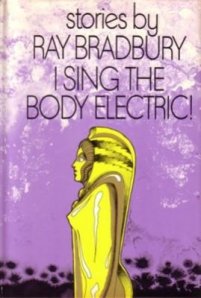
I think it must have been because of the NBC miniseries adaptation of The Martian Chronicles that I checked the copy of it out of the school library. This would have been in 1980, when I was eleven, in sixth grade and already an avid reader of fantasy: L. Sprague de Camp and Lin Carter’s twelve-book expansion of Robert E. Howard’s Conan stories; Lloyd Alexander’s Chronicles of Prydain; Tolkien’s Ring books. I was also a devoted reader of Marvel Comics, especially Roy Thomas and John Buscema’s Conan the Barbarian. If you had asked most of the adults around me, I’m sure they would have opined that Bradbury’s would have been exactly the book to give to such a child.
From the start, though, I had my doubts. The cover, for one thing. (I know; I know: books, covers. I wish I could say I’d ever taken that maxim to heart.) Ian Miller’s pen and ink drawing showed a series of armored–were they mice? Armadillos? Some kind of four-legged, or four-wheeled, creatures, apparently with brushes extending to either side of their snouts, and wires or antennae extending forward from their noses. Above them, a robotic arm held a ruined something, a piano, maybe; although what it wanted with the piano, I wasn’t sure. A wall with a rectangular opening in it took up about three-quarters of the near background; while more of the armored things rolled over the further distance. There was no doubt that the cover was of the kind of narrative I preferred, but it was of such a distinct and unfamiliar species as to be almost completely foreign. Though I didn’t realize it at the time, it was as if I were seeing this book in the way those around me saw my usual choice of reading.
Nor did the stories inside do anything to dispel my concerns. There were rockets, yes, and Mars, and Martians, and strange weapons, but there was also a Martian woman who fantasized about the approaching human astronauts as a relief to the monotony of her loveless marriage, and her jealous husband, who loaded his strange gun with bees and set off to hunt those astronauts as soon as their ship touched down. There was a Martian asylum in which the next set of astronauts found themselves trapped by a Martian psychiatrist who believed them to be not from Earth, but insane, and when he found he could not cure them, euthanized them. There was a Martian town that camouflaged itself as a human town in order to lull the third set of astronauts into a false sense of security, to make them easier to murder in their beds at night. There was the astronaut in the fourth party who turned on his fellows, identifying himself as a Martian and trying to kill them all in order to forestall the exploration and settlement of the planet. I understood it all on the sentence level, but the emotional subtleties of the book’s contents soared clean over my head, and I didn’t finish it.
I don’t know what it was that caused me to return to The Martian Chronicles two years later, towards the end of eighth grade, but I remember bringing it with me to read on the way to and from the class field trip to Howe Caverns. This time, I completed the book, though it still didn’t make as big an impression on me as it would the following year, when, in an inspired moment, my ninth grade Honors English teacher selected it as the extra book the class would read. This pass through, “Night Meeting,” about a human on his way to a party who meets the ghost of a Martian on his way to a party, struck me in a way few things I read at the time would match. In the story, neither the human nor the Martian can fully accept what’s happening to him; each is stubbornly certain of not only the reality, but the primacy, of his circumstances. Although they’re united by a remarkable experience, in the end, the two go their separate ways because, really, what else are they going to do? How strange it was to think that you might be part of an extraordinary, even a miraculous, event, and then have to continue with the rest of your life.
This reading, I also reveled in the more savage pleasures of “Usher II,” a simultaneous homage to Poe’s most famous murders and an indictment of censorship, Fahrenheit 451 in miniature. I would read that novel not long thereafter, struck by the device of the mechanical dogs that hunt down the enemies of the state and leap on them in order to deliver a fatal injection from the needles in their chests. Inspired by Stephen King’s discussion of the book in Danse Macabre, I would search out Something Wicked This Way Comes, and be unnerved by the confrontation between the Dust Witch and Charles Halloway. And then I checked The October Country out of the local library.
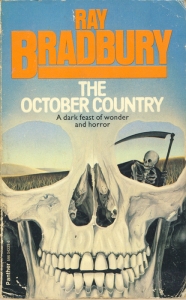 The Martian Chronicles had expanded my sense of the emotional register available to the writer of fantastic fiction. The October Country continued that expansion, and added another to it: a sense of the unbridled possibilities open to the writer interested, as was I, in exploring the darker end of the fantastic spectrum. Yes, there were the traditional monsters present in a couple of the stories, but Bradbury had succeeded in writing a new lexicon of unease, whether it focused on the crowd, or the wind, or even a baby. The best of these stories brought together a sophisticated emotional content with an innovative subject to devastating effect. Yet despite their apparently different genre, they’re not so much the opposite of the stories in The Martian Chronicles as they are their complement, using the materials of the fantastic to map the main streets and alleyways of the human heart. I can see, now, why for so many of the writers who followed immediately after him, Bradbury was as inescapable as Hemingway was for the writers who trod close on his heels.
The Martian Chronicles had expanded my sense of the emotional register available to the writer of fantastic fiction. The October Country continued that expansion, and added another to it: a sense of the unbridled possibilities open to the writer interested, as was I, in exploring the darker end of the fantastic spectrum. Yes, there were the traditional monsters present in a couple of the stories, but Bradbury had succeeded in writing a new lexicon of unease, whether it focused on the crowd, or the wind, or even a baby. The best of these stories brought together a sophisticated emotional content with an innovative subject to devastating effect. Yet despite their apparently different genre, they’re not so much the opposite of the stories in The Martian Chronicles as they are their complement, using the materials of the fantastic to map the main streets and alleyways of the human heart. I can see, now, why for so many of the writers who followed immediately after him, Bradbury was as inescapable as Hemingway was for the writers who trod close on his heels.
So while I respect the tributes to Ray Bradbury that have linked him with the writers’ childhoods, for me, he will always be the writer who demonstrated the ways in which the literature of the fantastic might go with us out of childhood, along the dark highways that would follow.
JEFF MARIOTTE — author, bookseller
[Excerpted with permission of the author. Read the full post here.]
Shhh!
Listen…
Do you hear it? The world is a little quieter today. A great, loud, rambunctious, exhortative voice has been stilled.
A room that contained Ray Bradbury was seldom quiet. He was given to enthusiastic outbursts, often just one or two words: “Thrive!” “Write!” “Live!”
He could, of course, talk for longer than that. He was one of those rare beasts, a writer who’s as good, as entertaining and inspiring and important, in person, one-on-one or in a small group or in front of a packed auditorium, with people leaning against the walls and sitting in the aisles, as he is on the page. If Ray had never set fingers to a keyboard but delivered the same lectures, he would still be a seminal figure in American culture.
But he did, of course, write. All the time. Every day, for eighty-some years. He started making money at it in 1941, and he didn’t stop until he had published something like 600 stories and a couple dozen novels.
Much has been written about Ray these past couple of days, since his passing at the age of 91. That’s good—Ray needs to be remembered, and appreciated. And some, perhaps many, of those writers knew Ray better than I did.
Doesn’t matter. Ray was important to me, and I have stories to tell, too.
MATTHEW KRESSEL — author, publisher, editor
When I think of my favorite Ray Bradbury stories, I think of three. “There Will Come Soft Rains,” about an automated house that continues functioning long after the family has died of a nuclear holocaust; “A Sound of Thunder,” about a man who travels back in time on a safari to kill a T-Rex and accidentally changes the future for the worse; And “All Summer in a Day” about a group of schoolchildren on Venus who lock a girl in a closet, causing her to miss a rare and all too brief sunny day.
What unites them for me is a terrible sense of loss, a taste of what might have been but wasn’t, because of our mistakes. It’s as if something beautiful and vital has been yanked away — something that, had we been paying attention, we could have prevented. And I think it’s that aspect of Bradbury’s writing that has stuck with me the most. Without realizing it, I have been imitating that theme in my own work, trying to capture the sense of horror that comes with losing something precious and irreplaceable.
In his most recent and I believe last published work, “Take Me Home,” a sidebar in a recent New Yorker, Ray Bradbury said that as a child he was “always yelling and running somewhere, because I was afraid that life was going to be over that afternoon.” Perhaps that early sense of the transience of life awoke the fire of writing in him.
Hurry up, get it all down, before this circus ends! he must have thought. And he did get an enormous amount down, writing over 600 stories and a dozen novels in a career that spanned seven decades.
In Zen in the Art of Writing he wrote “Everything I’ve ever done was done with
excitement, because I wanted to do it, because I loved doing it.” I doubt many people can say the same of their lives, and I also doubt Ray Bradbury was exaggerating when he wrote that. When you learn the greatest of lessons early on, that life is utterly short, precious, dangerous and exhilarating, it’s easy to see how you must make every moment count. Most of us have to wait until we lose someone dear to us to learn this hard lesson, but Ray sensed the transience of life from the get go.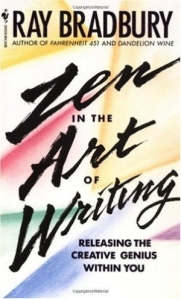
No wonder then why his stories are so full of vitality (that and perhaps the fact that he rented typewriters at the library by the half-hour). The best and most powerful antidote to death is life, and Ray was full of it. He wrote one thousand words a day for his entire career, even after he suffered a stroke over a decade ago. Life could not be snuffed out of him, even at 91. And I sense that in his last piece, “Take Me Home,” Ray was acutely aware of his own mortality and in his own unique way railed against the unfairness of it while at the same time accepting its bleak inevitability.
He was one of the last of the Golden Age SF greats still living, and with his passing I have the sense that we are all now like the automated house in “There Will Come Soft Rains.” We grind on with our daily routines, dimly aware that someone or something essential has been taken from our midst.
In Zen in the Art of Writing he wrote, “A well-fed man keeps and calmly gives forth his infinitesimal portion in eternity. It sounds big in the summer night. And it is, as it always was down the ages, when there was a man with something to tell, and ones, quiet and wise, to listen.” Ray gave forth no small portion of himself, I think, and the best way we can honor his passing is to heed his words. Be quiet, be wise, and listen.
May you rest in peace Ray.
DANI KOLLIN — author
[Excerpted with permission of the author. Read the full post here.]
Ray Bradbury was one such emotional maestro; was my emotional maestro. Not just an expert storyteller, but also a master craftsman. You didn’t read Ray; you lived Ray⎯such was the power of the master’s pen.
The world has lost an inextricable force of nature. Though we have his words to console us and his vision to guide us it was his voice that enthralled. A voice now silenced forever.


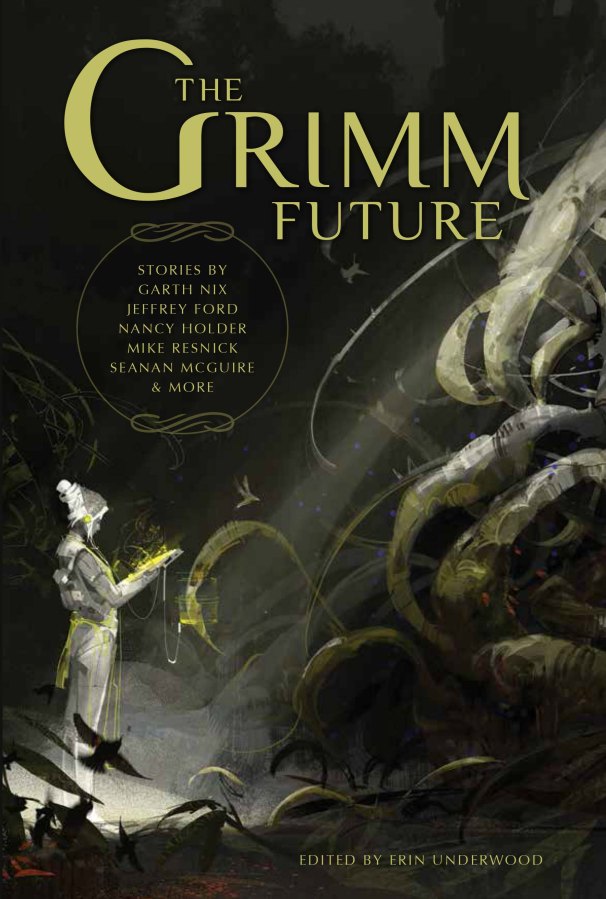

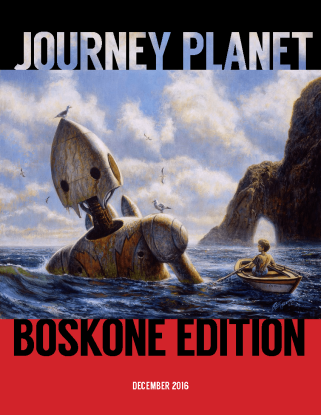
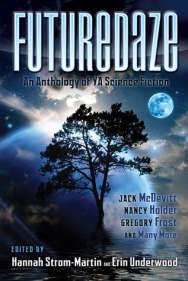
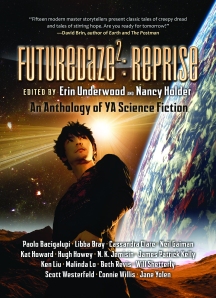
The Martian Chronicles taught me to never set limits on imagination. Fahrenheit 451 turned my reluctant son into an avid reader. The spirit of Ray Bradbury will always be with my family.
Pingback: SF Tidbits for 6/11/12 - SF Signal – A Speculative Fiction Blog
Pingback: Magpie Monday | Robert E. Stutts
Pingback: Kickstarter Count Down, Futuredaze Submissions Closing Soon, & Book Cover Update | Underwords
Pingback: Top Picks Thursday 06-14-2012 « The Author Chronicles
Pingback: The Nameless Dark | Mr Gaunt: